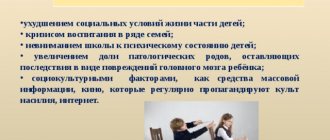| Interpersonal relationships |
| Types of Relationships |
| Agamy · Marriage · Widowhood · Civil partnership · Friendship (Bromance) · Significant other · Monogamy · Polyfidelity · Polyamory · Polygamy (Polygamy · Polyandry) · Kinship · Family · Cohabitation · Relationships for sex |
| Events |
| Courtship · Flirting |
| Feelings and emotions |
| Close connection · Attraction |
| Violence in relationships |
| In family · Against adults |
| Template: view • discussion • edit |
Monogamy
(from ancient Greek μονος - single + γάμος - marriage [1]) - monogamy, a form of marriage and family in which a person has only one partner during his life or at any point in time (serial monogamy), compared with polygamy, polyandry and polyamory[1]. The term is also applied to the social behavior of some animals.
Terminology
It is important to have a clear understanding of the nomenclature of monogamy, as scientists use the term "monogamy" to describe various relationships. behavioral ecologists
) often use the term monogamy in a sexual sense, rather than a genetic one[2]. Modern biologists using the theory of evolution consider monogamy in humans as a phenomenon inherent not only to humans, but also to animals. They postulate the following four aspects of monogamy:
- Marital (or family) monogamy refers to marital unions consisting of only two people.
- Social monogamy sees two partners living together, having sex with each other, and interacting to acquire basic resources such as housing, food and money.
- Sexual monogamy refers to two partners being in an exclusive sexual relationship with each other and not having any other sexual partners[3].
- Genetic monogamy refers to sexually monogamous relationships with genetic evidence of paternity[3].
When cultural or social anthropologists and other social scientists use the term "monogamy", they mean social or marital monogamy[2][3]. Marital monogamy can be divided into:
- marriage is once in a lifetime,
- marriage to only one person at a time (serial monogamy), as opposed to polygamy[1].
The legal aspects of monogamy in humans are taught in law departments. Philosophical aspects of monogamy are considered, for example, by philosophical anthropology and philosophy of religion, as well as theological disciplines.
Why monogamy is better for women
Perhaps men are satisfied with polygamy, but for women and children it turns out to be disastrous. In such relationships, conflicts between wives and domestic violence flourish, and children receive less care and more stress than in monogamy.
Most women from polygamous families in South Africa do not have Socio-demographic and behavioral profile of women in polygamous relationships in South Africa: a retrospective analysis of the 2002 population-based household survey data of higher education, money for food and clothing. They are much younger than their husbands and are forced to look for satisfaction on the side, experiencing constant stress.
In 2011, scientists compared the mental state of women from monogamous and polygamous families in Jordan. It turned out A comparison study of psychological, family function marital and life satisfactions of polygamous and monogamous women in Jordan that polygyny has a bad effect on women’s mental health, reduces self-esteem, satisfaction with marriage and life in general. The same thing was observed Mental health and polygamy: The Syrian case in both Syria and Palestine A study of psychological symptoms, family function, marital and life satisfactions of polygamous and monogamous women: the Palestinian case. An analysis of 22 scientific papers from 2013 confirmed The impact of polygamy on women's mental health: a systematic review this fact:
In women in polygamous families, somatization is more common - the transfer of negative emotions to the physical plane, depression, anxiety, hostility and mental illness.
Of course, there are also defenders of polygamy. Terri Conley of the University of Michigan argues that the Western scientific world is biased against this model of marriage, and argues that in polygamous families the level of trust, fidelity, passion and overall satisfaction with relationships is no less than in monogamous ones. To understand for sure who is right here, it is necessary to conduct a qualitative analysis of research on this topic, but so far no one has undertaken such work.
Monogamy suits people because it benefits the larger community, meets the needs of both men and women, and eliminates gender inequality. At the same time, people can live in polygamous families, and under certain conditions, humanity can return to polygamy again.
Monogamy in animals
| : Incorrect or missing image | This section is missing references to information sources. Information must be verifiable, otherwise it may be questioned and deleted. You may edit this article to include links to authoritative sources. This mark is set July 14, 2020 . |
K: Wikipedia: Articles without sources (type: not specified)
Monogamy in animals is a relationship between the sexes, characterized by the fact that the male mates with one specific female for a more or less long period of time and usually takes part in caring for the offspring. Monogamy is observed in most birds, and swans, storks, eagles, and vultures pair up for several years, in some cases for life, others for only one season, separating after hatching and feeding the chicks (for example, geese) or even immediately after making a nest, even before laying eggs (many ducks). All wild geese are monogamous. Among mammals, monkeys and wolves form pairs for several years or more; arctic foxes, foxes, badgers, stoats, beavers - rarely for more than one season. Monogamy sometimes also includes relationships between insects and other invertebrates, in which both sexes (or only males) die soon after a single mating (females - after laying eggs).
What is polygamy (polygamy)
Polygamy is a form of cohabitation or marriage in which a person of either gender is in a long-term relationship with more than one partner.
Features of polygamy:
- the opportunity to leave offspring increases;
- there is greater frankness and openness;
- the problem of unmarried people is solved;
- novelty, freshness, variety are added;
- breakup or divorce are much less common;
- There are no many prohibitions.
Notes
- ↑ 123
Cf. "Monogamy" in
Britannica World Language Dictionary
, R. C. Preble (ed.), Oxford-London 1962, p. 1275:
1. The practice or principle of marrying only once. opp. to digamy now
rare
2. The condition, rule or custom of being married to only one person at a time (opp. to polygamy or bigamy) 1708. 3. Zool. The habit of living in pairs, or having only one mate
; The same text repeats
The Shorter Oxford English Dictionary
, W. Little, H. W. Fowler, J. Coulson (ed.), C. T. Onions (rev. & ed.,) Oxford 1969, 3rd edition, vol.1, p.1275;by country Bhutan • Kazakhstan • Mozambique • Nigeria see also monogamy • polyandry • bigamy • harem • polyandry in insects
Advantages and disadvantages of monogamous marriages
Unions that involve only two partners have pros and cons depending on the approach and specific conditions. However, they are more subjective, since they have a significant influence on attitudes towards family form.
Among the main advantages are:
- a familiar form, not condemned by most societies in the world;
- concentration of partners on each other, excluding the possibility of betrayal and participation of third parties;
- concentration of economic resources in the family and their distribution among descendants. This implies that a polygamous marriage may produce many heirs who claim their share of the property;
- the need to support only one spouse, etc.
In addition to the attitude of society and the direct ban on registering polygamous marriages in the Russian Federation, there are some supporters of such relationships. In particular, some negative aspects of monogamy are highlighted that support supporters of the opposite form of marriage:
- the likelihood of having numerous offspring;
- the possibility of solving the problem of a large number of unmarried women. The argument is often made here that there are more women than men and that to ensure family life, several wives are needed per man;
- diversity in relationships, etc.
In general, the pros and cons are formed individually depending on the position of a particular person and the society in which he lives.
Excerpt characterizing Monogamy
The footman came to summon Boris to the princess. The princess was leaving. Pierre promised to come for dinner in order to get closer to Boris, firmly shook his hand, looking affectionately into his eyes through his glasses... After he left, Pierre walked around the room for a long time, no longer piercing the invisible enemy with his sword, but smiling at the memory of this dear, smart and strong young man. As happens in early youth and especially in a lonely situation, he felt an unreasonable tenderness for this young man and promised himself to make friends with him. Prince Vasily saw off the princess. The princess held a handkerchief to her eyes, and her face was in tears. - It's horrible! terrible! - she said, - but no matter what it costs me, I will do my duty. I'll come over for the night. He can't be left like that. Every minute is precious. I don’t understand why the princesses are delaying. Maybe God will help me find a way to prepare it!... Adieu, mon prince, que le bon Dieu vous soutienne... [Farewell, prince, may God support you.] - Adieu, ma bonne, [Farewell, my dear,] - answered the prince Vasily, turning away from her. “Oh, he’s in a terrible situation,” the mother said to her son as they got back into the carriage. “He hardly recognizes anyone.” “I don’t understand, mamma, what is his relationship with Pierre?” - asked the son. “The will will say everything, my friend; Our fate depends on him... - But why do you think that he will leave anything to us? - Ah, my friend! He is so rich and we are so poor! “Well, that’s not a good enough reason, mummy.” - Oh my god! My God! How bad he is! - exclaimed the mother. When Anna Mikhailovna left with her son to visit Count Kirill Vladimirovich Bezukhy, Countess Rostova sat alone for a long time, putting a handkerchief to her eyes. Finally, she called. “What are you talking about, dear,” she said angrily to the girl, who made herself wait for several minutes. – Don’t you want to serve, or what? So I'll find a place for you. The countess was upset by the grief and humiliating poverty of her friend and therefore was out of sorts, which she always expressed by calling the maid “dear” and “you.” “It’s your fault,” said the maid. - Ask the Count to come to me. The Count, waddled, approached his wife with a somewhat guilty look, as always. - Well, countess! What a saute au madere [sauté in Madeira] will be from hazel grouse, ma chere! I tried; It’s not for nothing that I gave a thousand rubles for Taraska. Costs! He sat down next to his wife, resting his arms bravely on his knees and ruffling his gray hair. - What do you order, Countess? - So, my friend, what is it that you have dirty here? - she said, pointing to the vest. “It’s sote, that’s right,” she added, smiling. - That's it, Count: I need money. Her face became sad. - Oh, countess!... And the count began to fuss, taking out his wallet. “I need a lot, Count, I need five hundred rubles.” And she, taking out a cambric handkerchief, rubbed her husband’s vest with it. - Now. Hey, who's there? - he shouted in a voice that only people shout when they are sure that those they are calling will rush headlong to their call. - Send Mitenka to me! Mitenka, that noble son raised by the count, who was now in charge of all his affairs, entered the room with quiet steps. “That’s it, my dear,” said the count to the respectful young man who entered. “Bring me…” he thought. - Yes, 700 rubles, yes. But look, don’t bring anything torn and dirty like that time, but good ones for the countess. “Yes, Mitenka, please, keep them clean,” said the countess, sighing sadly. - Your Excellency, when will you order it to be delivered? - said Mitenka. “If you please know that... However, please don’t worry,” he added, noticing how the count had already begun to breathe heavily and quickly, which was always a sign of beginning anger. - I forgot... Will you order it to be delivered this minute? - Yes, yes, then, bring it. Give it to the Countess. “This Mitenka is such gold,” the count added, smiling, when the young man left. - No, it’s not possible. I can't stand this. Everything is possible. - Oh, money, count, money, how much grief it causes in the world! - said the countess. - And I really need this money. “You, countess, are a well-known reel,” said the count and, kissing his wife’s hand, he went back into the office. When Anna Mikhailovna returned again from Bezukhoy, the countess already had money, all in brand new pieces of paper, under a scarf on the table, and Anna Mikhailovna noticed that the countess was disturbed by something. - Well, what, my friend? – asked the Countess. - Oh, what a terrible situation he is in! It is impossible to recognize him, he is so bad, so bad; I stayed for a minute and didn’t say two words... “Annette, for God’s sake, don’t refuse me,” the countess suddenly said, blushing, which was so strange in her middle-aged, thin and important face, taking money out from under her scarf.
The history of the institution of marriage and family
The family is the oldest form of uniting people for different purposes.
It began to form back in the 7th-3rd millennium BC. after people began to gradually switch to farming, gathering from hunting and fishing. The heterogeneous formation of families led to the fact that different forms began to appear in different territories. This was also facilitated by the stratification of society and its division into different social groups. It is during this period that the family is formed as a unit of society.
However, the attitude towards its composition and roles differed, since in some cases it was monogamous, in others polygamous. For the most part, families had a patriarchal system, with the eldest man occupying the dominant position. Women, in most cases, performed the function of raising children and maintaining household life.
Subsequently, the institution of marriage underwent numerous modifications. Among other things, attitudes towards marriage changed depending on the events taking place at a particular moment.
The 20th century saw a significant transformation in views about the family, especially in developed countries. From a union where a man played a dominant and overwhelming role, the unit of society began to transform into a unity of two equal people.
Monogamous relationships - what does it mean?
Yes, monogamous relationships are for us a stronghold of family relationships and fidelity, but along the way there may be pitfalls that not everyone can overcome without losses. Monogamy -, monogamy, plural. no, w. (from Greek monos - one and gamos - marriage) (ethnol.). The first remain faithful, and this does not bother them at all, since they are happy with one, the best and most beloved woman.
However, researchers know that singles with information about their sex lives tend to be conservative. Whether you're making a monogamous or open relationship more psychologically, physically, and sexually satisfying, you have to find yours. Needs vary from person to person and are always individual. However, be sure to allow your partner to be open about your wishes and ideas for the relationship to avoid misunderstandings.
For a long time, unconditional sexual exclusivity was the number one ideal of love. But more and more people are alien. Is fidelity still a modern value as a value? The two writers were very controversial. The Trecein dilemma can easily be summed up in one sentence: we dream of almost all of it, but only half of us manage it. For 90 percent of Germans, loyalty is the most important prerequisite for the study from Hamburg. But every second person allows at least one stranger at the same time.












